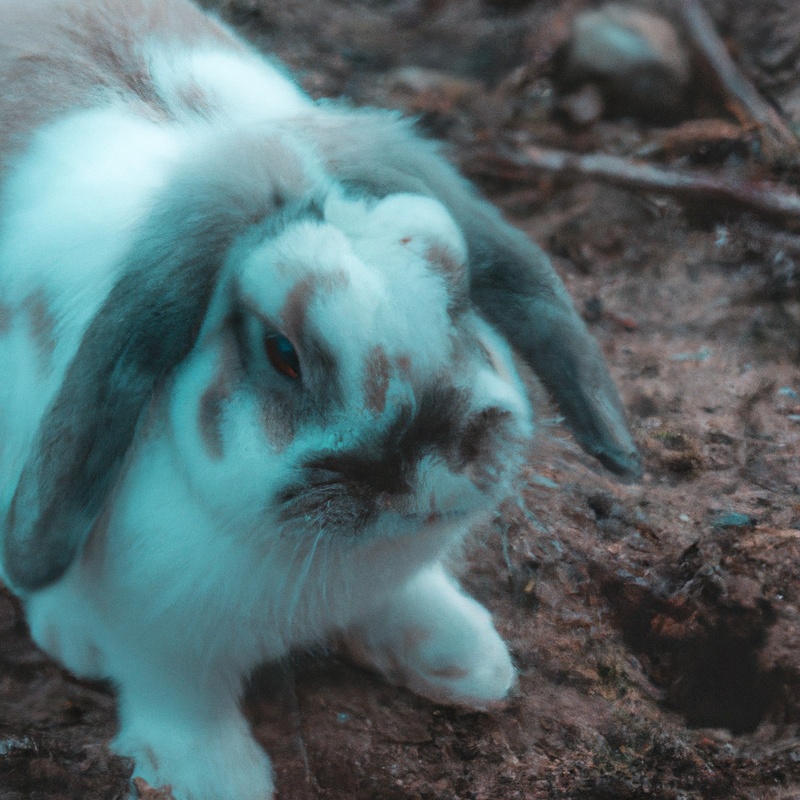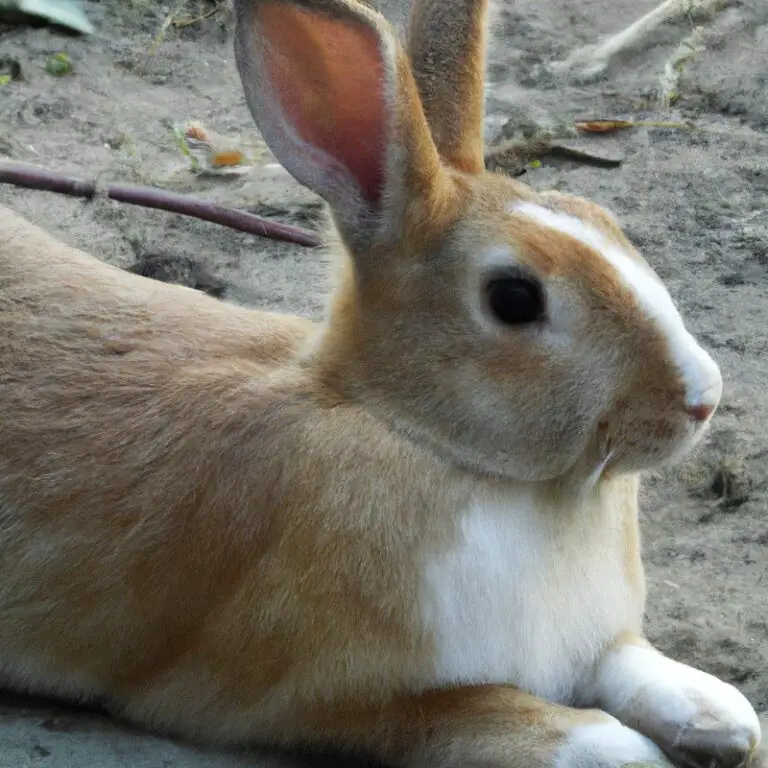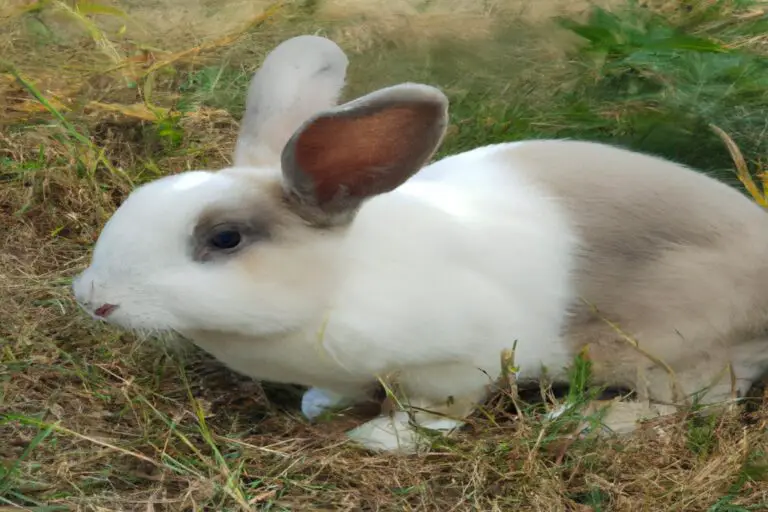Can Rabbits Have Mandarin Oranges? A Tasty Treat for Bunnies!
Key Takeaways:
- Rabbits can safely eat small amounts of mandarin oranges as a treat, provided they are introduced gradually and in moderation.
- The high sugar content in mandarin oranges makes them suitable for occasional consumption, but they should never be a staple in a rabbit’s diet.
- Avoid feeding rabbits mandarin peels or seeds, as they can be difficult to digest and may cause gastrointestinal issues.
- Always consult with a veterinarian before introducing any new food to your rabbit’s diet to ensure their safety and well-being.
Do you ever wonder if your furry little friend can indulge in some citrusy goodness? Well, today we’re diving into the world of rabbits and mandarin oranges.
Can rabbits have mandarin oranges?
It’s an interesting question that has sparked some debate among rabbit owners. In this article, we’ll explore the ins and outs of a rabbit’s diet, delve into the nutritional value of mandarin oranges, discuss the risks involved, and offer safe alternatives.
Plus, we’ll give you some tips on introducing new foods to your rabbit’s diet.
So let’s hop right in and find out if mandarin oranges are a go or a no for our fluffy companions!
| Can rabbits have mandarin oranges? | Yes | No |
|---|---|---|
| Nutrition | Rich in vitamin C | High in sugar, not ideal for rabbits |
| Digestion | May cause digestive issues | May cause stomach upset |
| Potential Risks | No known toxicity | Can cause weight gain, dental issues |
| Feeding Guidelines | Occasional treat in small amounts | Avoid or limit |
Can rabbits have mandarin oranges?
Rabbits should not be fed mandarin oranges as they are not a suitable food for them.
1. Understanding a rabbit’s diet
A rabbit’s diet is primarily made up of hay, fresh vegetables, and a small amount of pellet food.
Hay is essential for their digestive health and should make up the majority of their diet.
Fresh vegetables, such as leafy greens and carrots, provide additional nutrients and hydration.
Pellet food should be offered in moderation to ensure balanced nutrition.
Avoid feeding them fruits, sugary treats, and foods high in starch as they can upset their delicate digestive system.
Always provide fresh water and monitor your rabbit’s weight to maintain their overall health.
2. Nutritional value of mandarin oranges
Mandarin oranges are not only delicious but also have several nutritional benefits for rabbits.
They are a great source of vitamin C, which is essential for the overall health and immune system function of your furry friend.
Mandarin oranges also contain dietary fiber, which aids in digestion and promotes gut health in rabbits.
Furthermore, they provide hydration due to their high water content.
However, it’s important to remember that mandarin oranges should only be given to rabbits as an occasional treat, in moderation.
Too much citrus fruit can cause digestive issues for rabbits, so it’s best to consult with a veterinarian before introducing them to your rabbit’s diet.
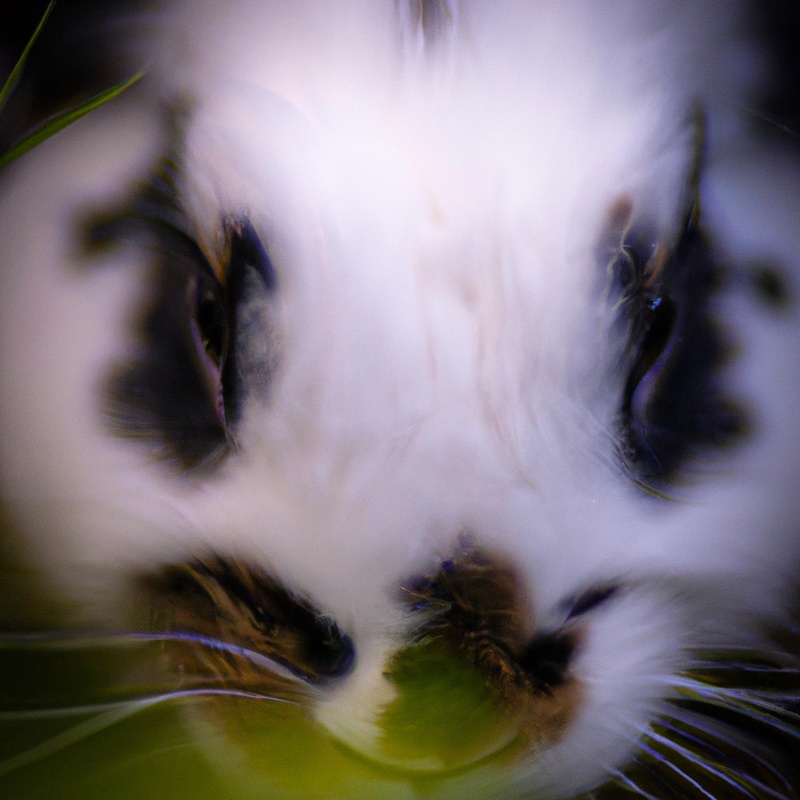
3. Risks of feeding mandarin oranges to rabbits
Feeding mandarin oranges to rabbits can be risky. Here’s why:
- High sugar content: Mandarin oranges are sweet and contain a high amount of natural sugars. Feeding them to rabbits in excess can lead to weight gain, digestive issues, and even dental problems.
- Upset stomach: Rabbits have sensitive digestive systems, and the citric acid in mandarin oranges can cause stomach upset, such as diarrhea or bloating.
- Possible choking hazard: The small size and round shape of mandarin orange segments can be a choking hazard for rabbits, especially if they’re not properly chewed.
It’s best to avoid feeding mandarin oranges to your rabbit and stick to their usual diet of hay, fresh vegetables, and a small amount of pellets. Always consult with a veterinarian before introducing any new food into your rabbit’s diet.
4. Safe alternatives to mandarin oranges for rabbits
Rabbits shouldn’t be fed mandarin oranges, but there are safe alternatives.
Here are four options you can try:
- Leafy greens: Rabbits love greens like lettuce, spinach, and kale. These provide essential nutrients without the high sugar content of oranges.
- Sweet vegetables: Carrots, bell peppers, and sweet potatoes are tasty alternatives that won’t harm your rabbit’s digestive system.
- Berries: Strawberries, blueberries, and raspberries are all safe and nutritious treats for your furry friend.
- Apples: Slice apples into small pieces and remove the seeds before offering them to your rabbit. They are a healthier alternative to oranges.

5. How to introduce new foods to your rabbit’s diet
When introducing new foods to your rabbit’s diet, it’s important to take it slow and monitor their reactions.
Start by offering a small amount of the new food and observe for any signs of digestive upset such as diarrhea or bloating.
Gradually increase the portion if your rabbit tolerates it well.
It’s also crucial to introduce one new food at a time, allowing for a few days of observation in between.
This way, you can easily identify any allergies or sensitivities.
Remember to always consult with your veterinarian before making any significant changes to your rabbit’s diet.
6. Frequently Asked Questions
- Frequently Asked Questions
- Can rabbits have mandarin oranges?
Yes, rabbits can have small amounts of mandarin oranges as an occasional treat. However, it is important to remove the seeds and peel before feeding them to your rabbit to prevent any potential digestive issues.
2. How often can I give mandarin oranges to my rabbit?
Mandarin oranges should only be given as a treat and not as a regular part of your rabbit’s diet. It is recommended to give them to your rabbit no more than once or twice a week to avoid overfeeding and maintaining a balanced diet.
3. Can rabbits eat the peel of mandarin oranges?
No, rabbits should not eat the peel of mandarin oranges. The peel can be difficult for rabbits to digest and may cause digestive problems.
Always make sure to remove the peel before offering the fruit to your rabbit.
4. Are there any health benefits to giving mandarin oranges to rabbits?
Mandarin oranges contain vitamin C, which is beneficial for rabbits. However, rabbits produce their own vitamin C, so the amount obtained from mandarin oranges is minimal.
It is important to provide a balanced diet with a variety of vegetables to ensure your rabbit receives all the necessary nutrients.
5. Can rabbits eat other types of citrus fruits?
While mandarin oranges are safe for rabbits in moderation, other citrus fruits like oranges and lemons should be avoided. These fruits are higher in acidity and may upset your rabbit’s stomach.
6. What are some alternative treats for rabbits?
If you’re looking for alternative treats for your rabbit, consider offering small portions of other rabbit-friendly fruits and vegetables, such as apples, carrots, strawberries, or leafy greens like parsley or cilantro. Always introduce new foods gradually and monitor your rabbit’s reaction for any signs of digestive upset.
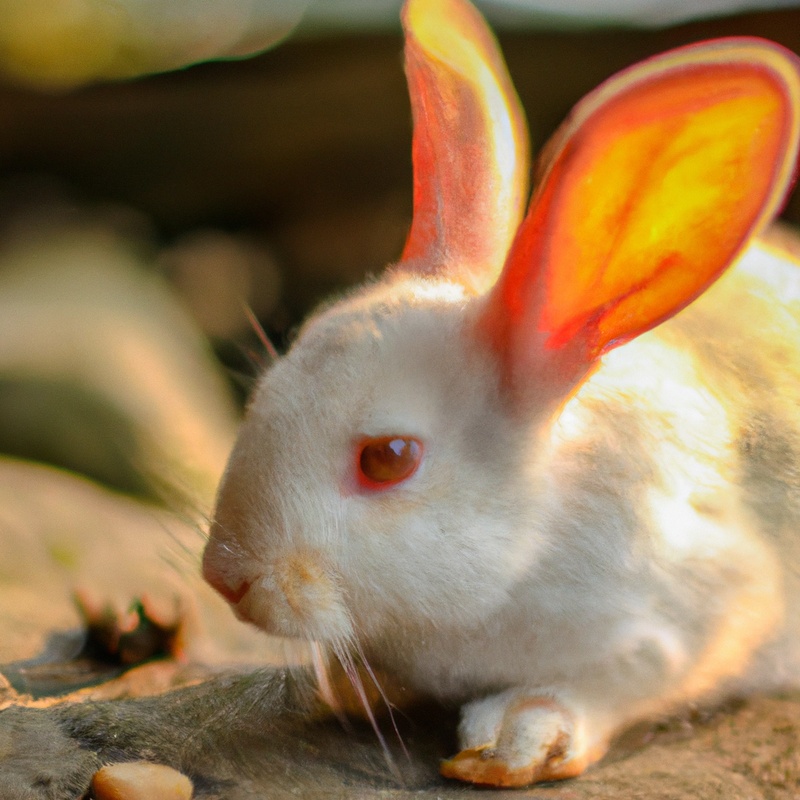
Understanding a rabbit’s diet
Understanding a rabbit’s diet is essential for their overall health and well-being.
1.1 Basic diet requirements
A rabbit’s basic diet requirements consist of fresh hay, water, and leafy greens.
These three components are essential for their health and well-being.
Hay provides the necessary fiber for proper digestion, while water keeps them hydrated.
Leafy greens, such as kale or spinach, add nutritional variety to their diet.
It’s important to feed rabbits the appropriate amount of each component to ensure a balanced diet.
It’s also advisable to limit fruits and treats, as they are high in sugar and can lead to health issues.
1.2 Importance of hay in a rabbit’s diet
Hay is a key component of a rabbit’s diet. It provides essential fiber that helps maintain a healthy digestive system.
The fibrous structure of hay helps wear down a rabbit’s constantly growing teeth, preventing dental problems.
Additionally, hay stimulates their appetite and provides mental stimulation. Timothy hay is a popular choice, but other types like orchard grass or oat hay can also be included.
Make sure to always have an ample supply of fresh, good-quality hay available for your furry friend.
1.3 Appropriate vegetables and fruits for rabbits
Rabbits can enjoy a variety of vegetables and fruits as part of their diet. Some safe options include leafy greens like kale, spinach, and romaine lettuce.
Carrots, bell peppers, and cucumbers are also well-received by rabbits.
When it comes to fruits, small portions of strawberries, apples, and blueberries can be given as treats. Always introduce new foods slowly and in small quantities, and monitor your rabbit for any signs of adverse reactions.
Remember to remove any uneaten fruits or vegetables from their enclosure to prevent spoilage.
1.4 Balancing a rabbit’s diet with pellets and fresh water
To balance a rabbit’s diet, it’s important to provide them with a combination of pellets and fresh water.
Pellets are formulated to meet a rabbit’s nutritional needs and should make up the majority of their diet.
However, it’s crucial not to overfeed them with pellets as it can lead to obesity.
Alongside pellets, rabbits also need access to fresh water at all times to stay hydrated.
It’s important to regularly clean and refill their water bottles to ensure they have clean drinking water available.
By offering a balanced diet of pellets and fresh water, you can help keep your rabbit healthy and happy.
Nutritional value of mandarin oranges
Mandarin oranges are packed with essential vitamins, minerals, and fiber, making them a nutritious snack for rabbits.
2.1 Overview of mandarin oranges
Mandarin oranges, also known as tangerines, are small citrus fruits that are native to Southeast Asia. They are widely enjoyed for their sweet, tangy flavor and easy-to-peel skin.
Mandarin oranges are a great source of vitamin C, fiber, and antioxidants.
They also contain essential minerals like potassium and calcium. These juicy fruits are low in calories and fat, making them a healthy snack option.
However, be sure to enjoy them in moderation as they do contain natural sugars.
2.2 Vitamins and minerals in mandarin oranges
Mandarin oranges are packed with vitamins and minerals that are beneficial for our health.
They are a great source of vitamin C, which helps boost the immune system and fight off illnesses.
Additionally, mandarin oranges contain vitamin A, which is important for vision and cell growth.
They also provide potassium, a mineral that helps regulate blood pressure and maintain proper heart function.
Including mandarin oranges in your diet can help ensure you’re getting these essential nutrients.
2.3 Fiber content in mandarin oranges
Mandarin oranges are packed with fiber, which is great for your digestive system.
Fiber helps to regulate bowel movements, prevent constipation, and keep you feeling full for longer periods of time.
In just one mandarin orange, you can get around 2 grams of fiber.
This makes mandarin oranges a healthy and satisfying snack option.
So go ahead and enjoy these tasty fruits knowing that they are not only delicious, but also provide you with a good dose of fiber.
Risks of feeding mandarin oranges to rabbits
Feeding mandarin oranges to rabbits can pose risks such as potential digestive issues, high sugar content, and possible allergic reactions.
3.1 Potential digestive issues
Potential digestive issues: Feeding mandarin oranges to rabbits can lead to potential digestive issues. Rabbits have sensitive digestive systems, and the high sugar content in mandarin oranges can disrupt their balance.
It may cause diarrhea, gas, and stomach discomfort.
Additionally, the high acidity of citrus fruits can also irritate their stomach lining. It’s best to avoid feeding mandarin oranges to rabbits to prevent these digestive issues.
3.2 High sugar content in mandarin oranges
Mandarin oranges have a high sugar content, which can pose risks to rabbits if consumed in large quantities. The excess sugar can lead to weight gain, digestive issues, and even dental problems.
Rabbits have a delicate digestive system that is designed for a diet high in fiber and low in sugar.
While an occasional small piece of mandarin orange may be fine as a treat, it is important to limit their intake to prevent potential health problems. Ensure that the majority of your rabbit’s diet consists of hay, fresh vegetables, and a small amount of pellets for a balanced and healthy diet.
3.3 Possible allergic reactions in rabbits
Possible allergic reactions in rabbits can occur when they consume mandarin oranges.
Some rabbits may have sensitivities or allergies to the citrus fruit, leading to symptoms such as diarrhea, stomach pain, or skin irritation.
If your rabbit shows any signs of an allergic reaction after consuming mandarin oranges, it is important to discontinue feeding them and consult with a veterinarian.
Safe alternatives to mandarin oranges for rabbits
If you’re looking for safe alternatives to mandarin oranges for your rabbit, you can consider giving them a variety of recommended fruits and suitable vegetables.
4.1 Recommended fruits for rabbits
Rabbits can enjoy a variety of fruits as a treat, but it’s important to offer them in moderation. Some recommended fruits for rabbits include:
- Apples: Make sure to remove the seeds and core before offering.
- Berries: Strawberries, blueberries, and raspberries can be a tasty and healthy option.
- Melons: Watermelon and cantaloupe are refreshing choices for rabbits.
- Papaya: This tropical fruit is packed with nutrients and can be a delicious treat.
Remember to introduce new fruits gradually and monitor your rabbit’s response. Always wash fruits thoroughly and remove any seeds, pits, or stems before feeding.
4.2 Suitable vegetables for rabbits
When it comes to choosing vegetables for your rabbits, there are some options that are more suitable for them.
Here are some vegetables that you can incorporate into your rabbit’s diet:
- Leafy greens such as romaine lettuce, kale, and spinach
- Carrots (in moderation due to their high sugar content
- Bell peppers (red, green, or yellow
- Cucumbers (without the seeds
Remember to introduce new vegetables gradually and observe your rabbit’s response to ensure they tolerate them well.
Always consult with a veterinarian for specific dietary recommendations for your furry friend.
4.3 Guidelines for choosing safe foods for your rabbit
When it comes to choosing safe foods for your rabbit, there are a few guidelines you should follow. Firstly, make sure to focus on fresh, high-quality hay as the foundation of their diet.
This helps maintain their gastrointestinal health.
Secondly, introduce leafy greens gradually and in small amounts to avoid digestive upset. Some safe options include romaine lettuce, cilantro, and dandelion greens.
Thirdly, avoid feeding your rabbit sugary or starchy foods like fruits and carrots in large amounts, as these can lead to obesity and dental issues.
Always consult with a veterinarian for specific dietary recommendations for your rabbit.
How to introduce new foods to your rabbit’s diet
Introducing new foods to your rabbit’s diet: a gradual approach is key. Monitor your rabbit’s response and consult with a veterinarian for guidance.
5.1 Gradual introduction of new foods
When introducing new foods to your rabbit’s diet, it’s important to do so gradually. Start by offering small portions and monitor how your rabbit reacts to each food.
Introduce one new food at a time and wait a few days before adding another.
This will help you identify any potential allergies or digestive issues. It’s also a good idea to consult with a veterinarian for guidance on suitable foods for your rabbit.
Remember to always prioritize your rabbit’s health and well-being when introducing new foods.
5.2 Monitoring your rabbit’s response to new foods
When introducing new foods to your rabbit’s diet, it’s important to monitor their response.
Here’s what you should look for:
- Observe their eating habits: Pay attention to how much of the new food they consume. Are they eating it eagerly or hesitant?
- Watch for any digestive issues: Keep an eye out for signs of diarrhea, bloating, or changes in their stool consistency. These could indicate a negative reaction.
- Monitor for allergic reactions: Look for any signs of itching, swelling, or difficulty breathing. If your rabbit shows these symptoms, remove the new food immediately.
- Evaluate their overall health: Assess if introducing the new food has had any positive or negative impact on their general well-being.
By closely monitoring your rabbit’s response to new foods, you can ensure their diet remains safe and suitable for their needs.
5.3 Consulting with a veterinarian for dietary advice
If you’re unsure about your rabbit’s diet or want to introduce new foods, consulting with a veterinarian is essential.
They can provide expert advice tailored to your rabbit’s specific needs.
A veterinarian will consider your rabbit’s age, health condition, and any dietary restrictions.
They can recommend appropriate foods and guide you on how to introduce them safely.
Don’t hesitate to reach out to your veterinarian for dietary advice – they’re there to help you ensure your rabbit stays healthy and happy.
Frequently Asked Questions
6.1 Can rabbits eat other types of oranges?
Yes, rabbits can eat other types of oranges besides mandarin oranges. However, it is important to remember to always feed them in moderation.
Oranges are high in sugar and can cause digestive issues if given in large quantities.
It’s best to introduce new foods slowly and monitor your rabbit’s reaction. If you notice any signs of discomfort or digestive upset, it’s best to remove the oranges from their diet.
6.2 How much fruit should be included in a rabbit’s diet?
When it comes to including fruit in a rabbit’s diet, it’s important to remember moderation.
While fruit can be a tasty treat for rabbits, it should only make up a small portion of their overall diet.
Ideally, fruits should make up no more than 10% of a rabbit’s daily food intake.
Stick to small, cut-up pieces of fruit like berries or melon, and avoid giving too much sugar-rich fruits such as mandarin oranges.
As always, consult with a veterinarian for specific dietary recommendations for your pet rabbit.
6.3 What are the signs of an allergic reaction in rabbits?
An allergic reaction in rabbits may manifest through various signs.
These signs can include red or swollen skin, excessive itching or scratching, watery or irritated eyes, sneezing, wheezing, difficulty breathing, or gastrointestinal upset such as diarrhea.
If you notice any of these symptoms in your rabbit, it is essential to consult a veterinarian for an accurate diagnosis and appropriate treatment.
6.4 Are there any fruits or vegetables that rabbits should never eat?
6.4 Are there any fruits or vegetables that rabbits should never eat?
Yes, there are certain fruits and vegetables that rabbits should never eat. These include avocado, rhubarb, grapes, cherries, and onions.
These foods can be toxic to rabbits and may cause digestive issues, liver damage, or other health problems.
It’s important to always research and consult with a veterinarian before introducing new foods to your rabbit’s diet. Stick to safe and rabbit-friendly options like leafy greens, carrots, and apples in moderation.
6.5 Can rabbits have citrus fruits in moderation?
Yes, rabbits can have citrus fruits in moderation.
Citrus fruits like mandarin oranges can be given as an occasional treat to your rabbit.
However, it’s important to remember that rabbits have sensitive digestive systems, so you should only offer small amounts of citrus fruits and closely monitor their reaction.
If your rabbit shows any signs of digestive upset, such as diarrhea or a loss of appetite, it’s best to avoid giving citrus fruits altogether.
Always consult with a veterinarian before introducing any new foods to your rabbit’s diet.
Final Verdict
While mandarin oranges might be a delightful treat for humans, they are not recommended for rabbits.
Rabbits have a specific dietary requirement that consists primarily of hay, supplemented with vegetables and limited amounts of fruits.
Mandarin oranges have a high sugar content and can lead to digestive issues and potential allergic reactions in rabbits.
Instead, it’s important to offer safe alternatives such as leafy greens and other rabbit-friendly fruits.
Remember to always introduce new foods gradually and consult with a veterinarian for personalized dietary advice.
Your rabbit’s health and well-being should always be the top priority.

